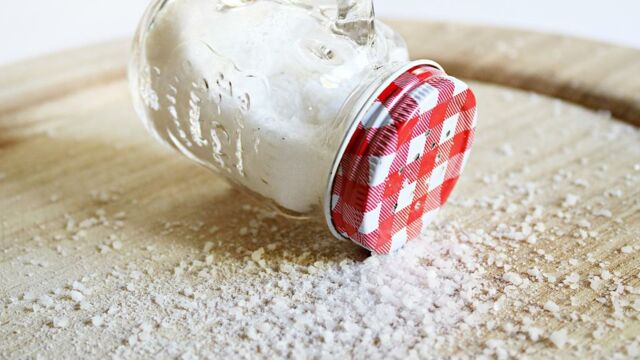Can you use salt after it's 'best by date'? Find out here

Have you wondered if the salt in your pantry can go bad, and be unsafe for eating? Here's all the answers you need.
There are many pantry items for which, you could apparently ignore best before dates. Some supermarkets have also started removing 'best before dates' from some items.
Discover our latest podcast
While salt is one of the most basic item in any pantry, have you wondered if it's safe to consume indefinitely? Or does it have an expiry date?
More under this adMore under this adAs reported by Real Simple, here is the truth about whether salt gets spoiled, and till what point can you safely consume it.
Does salt go bad?
First of all, a lot of people get mixed up between expiry date and 'best by dates.' The 'best by' is more of a suggestion from the manufacturer about when the product is at its freshest and peak quality.
More under this adMore under this adOn the other hand, the 'expiry date', often referred to as the 'use by' or 'sell by' date, is more about food safety. After the marked date, the food manufacturers cannot guarantee its safe for consumption.

When it comes to salt, it does not really have an expiry date. So generally speaking, salt can stay edible and unspoilt forever, and can be used beyond its 'best by' date. But if you have purchased a special kind of salt (for example, garlic salt, or salt enriched with some minerals), the 'best by' dates can be different compared to pure salt.
How to properly store salt
As per Real Simple, regular salt can remain fresh for up to 5 years, and can be used even beyond, safely. For other kinds of salt such as Himalayan pink salt etc, 3 years is the limit for it to be in peak shape, after which the taste and quality might start to decline.
More under this adMore under this adBut here, there is a caveat: you should be storing salt properly to make it last long to ensure it doesn't start clumping etc.
To store salt correctly, the most important factor is the level of humidity. As long as you store your salt in a dry area where it does not come into contact with humidity, your salt should last you in great shape for years to come.
More under this adMore under this adRead more:
⋙ Are you eating too much salt? Here's how your body lets you know
⋙ Voluntary recall issued on popular cheese slices over choking hazard
⋙ Replace salt with these alternatives while cooking, and it'll make your food delicious
Sources used:
Real Simple: 'Does Salt Go Bad?'